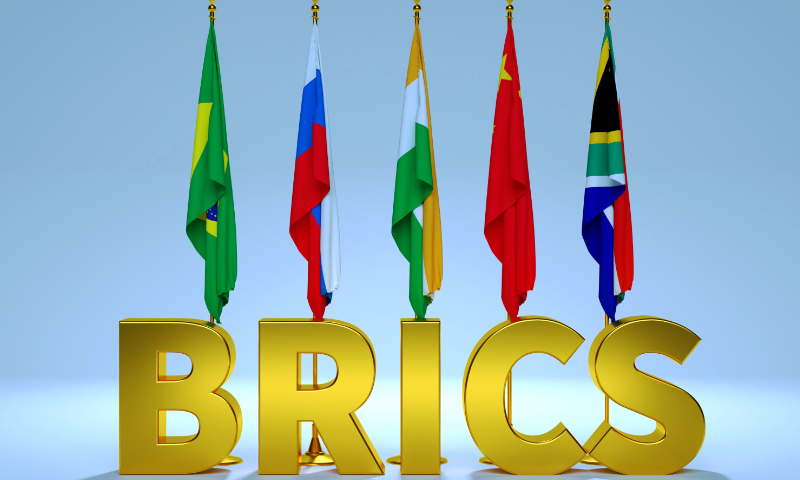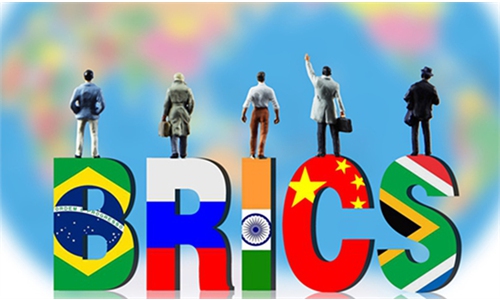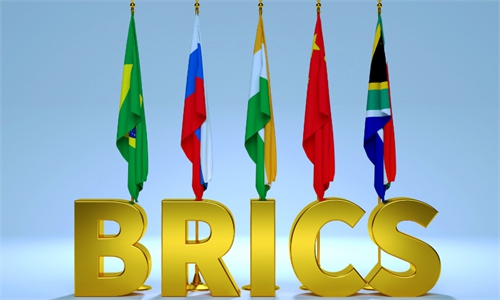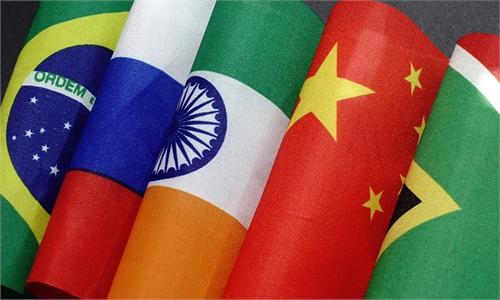
The 14th BRICS Summit, to be held virtually this week, comes at a crucial moment, as the US is escalating and expanding its new Cold War. While waging a proxy war in Ukraine with a view to inflicting a heavy blow against Russia, the US and its allies are also stepping up their anti-China rhetoric, recklessly undermining the one-China principle, sending warships and spy planes to Chinese waters and airspace, and reviving their despicable slander about the human rights situation in Xinjiang.
The Ukraine crisis has exposed important fault-lines in the so-called rules-based international order. The US has been able to persuade its European and Anglo-Saxon allies to impose unprecedented sanctions on Russia - at significant cost to ordinary people in those countries, who now face a cost of living crisis that threatens to drive millions into poverty. These sanctions, and the provision of heavy weaponry to Kiev, are aimed not at resolving the conflict but prolonging it.
However, most countries of the developing world have rejected the West's strategy of division and escalation. China's principled opposition to unilateral sanctions and its emphasis on a negotiated solution to the crisis are well known. India, which the US has long sought to cultivate as a stable ally and stalking horse against China, has also been firm in its opposition to sanctions against Russia. South African President Cyril Ramaphosa incurred the wrath of the Western media when he stated the blunt truth that the Ukraine war was primarily a result of NATO expansion. Even Brazil, while tending under its current government to side with the US, is taking a position of neutrality in relation to Ukraine.
Thus the BRICS countries are basically aligned when it comes to the current crisis in Europe. This is emblematic of an emerging pattern of coordination among the BRICS and among developing countries more generally.
In addition to being large countries in terms of population, land mass and economic activity, the BRICS countries to a certain extent represent wide geographical regions. With China actively supporting both the expansion of BRICS and the development of "BRICS Plus," the BRICS family is set to become an indispensable forum for the collective interests of developing and emerging countries.
What are these shared interests? Certainly they include increasing trade and investment - indeed the term "BRIC" was originally coined by Goldman Sachs economist Jim O'Neill in 2001, to identify the most important high-growth markets at that time. However, the BRICS group (with South Africa joining in 2010) has acquired an importance that goes beyond economics.
All the BRICS member states have a historical background of being oppressed by imperialism and/or providing crucial assistance to the anti-colonial liberation struggles. They have all suffered under an imperialist world system which concentrated wealth and power in a handful of rich countries while marginalizing others. As such, anti-hegemonic ideas are deeply entrenched in each of these countries, and the work of the BRICS forum is to a considerable degree focused on joining hands to oppose hegemonism and support multilateralism and sovereign development.
This historical and political character makes BRICS profoundly different to Western-led blocs such as NATO. The basic role of NATO is to consolidate, defend and expand US hegemonism and to carry out the Project for a New American Century. Meanwhile the purpose of the recently launched AUKUS is, as Chinese Foreign Minister Wang Yi pointed out recently, "to maintain the US-led system of hegemony and compromise the overall and long-term interests of countries in the region."
The historic mission of BRICS is essentially to consolidate, defend and expand a multipolar international order, based on international law and the United Nations, and overcome centuries of underdevelopment and entrenched inequality between the Global North and Global South.
At the BRICS foreign ministers' meeting on May 19 this year, Chinese President Xi Jinping summed up the high-level tasks facing the BRICS countries: to oppose hegemonism and power politics, reject Cold War mentality and bloc confrontation, and work together to build a global community of security for all.
The 14th BRICS Summit can be expected to carry these themes forward, to contribute to the construction of a fair, democratic and multipolar system of international relations and to forcefully represent the voice of the developing and emerging countries on the crucial questions facing humanity.
How to construct a lasting world peace? How to prevent climate breakdown? How to defeat COVID-19 and prevent future pandemics? How to wipe out poverty? Such questions simply cannot be solved in a context where a handful of rich countries - posing as "the international community" - impose their will on the world. BRICS and BRICS-Plus are powerful instruments for the construction of a democratic and just system of international relations.
The author is a British author and independent political commentator. opinion@globaltimes.com.cn



